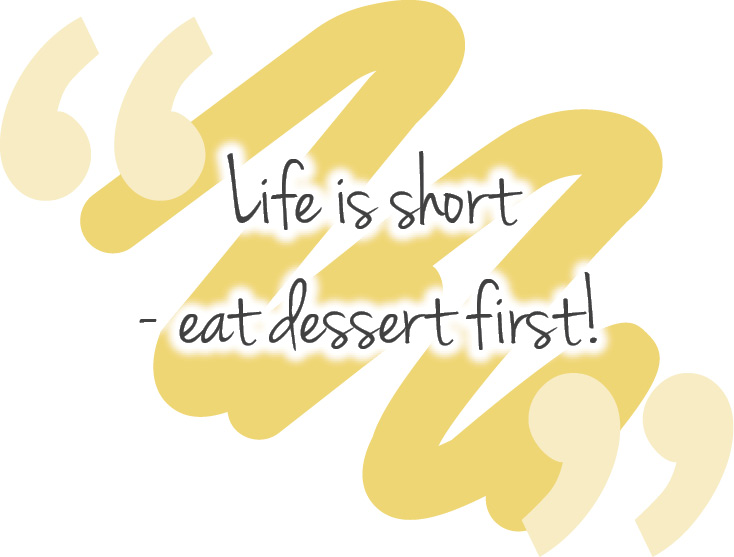

Monday, March 24, 2025
We all experience stress from time to time, and many of us share similar symptoms when we are stressed. Some of these shared symptoms, according to the Cleveland Clinic, are physical, emotional, and mental. They include exhaustion, headaches, high blood pressure, digestive problems, chest pain, muscle tension, a weakened immune system, anxiety, irritability, depression, panic attacks, and sadness.
But how do these symptoms show up according to your Shape? In this post, I will focus on the Squiggle.
Whether you identify with the Squiggle, or know someone who is a primary Squiggle, here are some things to know.
The Squiggle is a “Type A” personality and happy about it! The Squiggle (like the Triangle) is a stimulation-seeker. They cannot survive in a boring, everyday rut in which everything happens today just as it happened yesterday. While routine is comforting to most people, it is stressful to a Squiggle. Squiggles thrive on change. Doing it the same old way is totally boring.
In fact, a Squiggle’s major source of stress is having to live a strict, routine, mundane, predictable life. When this happens, the Squiggle will retreat to the inner recesses of the mind. It is important to understand that the Squiggle has a different reality from most of us. Reality is inner; the outer semblances of life are fragmentary. The Squiggle is highly metaphysical, a “new age” thinker. When the world doesn’t keep up, stress results.

Note: As with the other Shapes, the Squiggle under stress reveals their most negative traits. In the case of the Squiggle, they will appear disorganized, impractical, unrealistic, illogical, uninhibited, evangelistic, eccentric, and naive. More dramatic Squiggles become very eccentric during stressful periods of life.
How to Identify the Squiggle Under Stress
1. Unanimated, listless movement.
2. Boring to talk to; lacks usual enthusiasm.
3. Loss of sense of humor.
4. Emergence of an unusual negative attitude.
5. Critical of others (Squiggles are typically most critical of themselves).
6. Severely disorganized and forgetful of commitments.
7. Asks advice from others (Although this is a healthy strategy for people under stress, it is abnormal for Squiggles).
8. Withdraws to be alone (This is when the Squiggle retreats into that other reality. Although normal under favorable conditions, if very frequent, it’s a danger signal).
Squiggles feel most comfortable and least stressed when:
1. They have just thought up a great new idea!
2. Others are receptive to their ideas.
3. They have a new job.
4. They are involved in a new relationship.
5. They have conquered a difficult problem.
6. They have just accepted a new challenge.
7. They are recognized by others as intelligent and/or creative.
8. There is a good amount of excitement in their lives.
9. There is enough time alone to think and revitalize themselves.
10. There is an adoring audience for their performance.
Summary: Squiggles place the greatest emphasis on having the freedom and flexibility to get the job done (and having fun while doing it). When faced with a deadline, whether it’s self-imposed or imposed by others, the Squiggle can become withdrawn and overly focused, oblivious to how much time has passed since they last ate or got up to stretch. Because of this intensity, stress can also build without the Squiggle being aware that they are about to “break.”
If you are a Squiggle, try to be more aware of the early warning signs that accompany stress. Before sitting down to “knock it out no matter how long it takes,” set an alarm away from your working area so that you will be forced to get up and move around. Breaking the intensity can be helpful to the Squiggle who needs more than a subtle reminder to get the rest, food, and exercise they need to manage their stress. This is very difficult for the Squiggle, who doesn’t want to lose their momentum, especially when they are “on a roll.” To the Squiggle, taking a break sounds like it would be more stressful than just “hunkering down and getting it done!”
Squiggles need a strong co-worker, friend, or mate that they trust and will listen to, when it comes to being told to “take a break.” The wide swing in moods, from the ecstatic Squiggle with the amazing idea to the extremely intense, withdrawn, and relentless Squiggle to meet the deadline, cannot only be stressful to the Squiggle, but to those all around.
Remind the Squiggle of their own motto: “Life is short - Eat Dessert First!"
If you want to learn more about other PsychoGeometrics resources, including our online DIY modules, upcoming certification online classes, or how we can customize a team-building workshop for your group, feel free to reach out to me directly. Our team truly loves helping people leverage their Shapes for effective and influential communication!
Susan Hite, CEO, PsychoGeometrics, The Science of Behavior - The Art of Communication